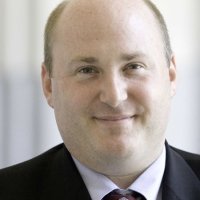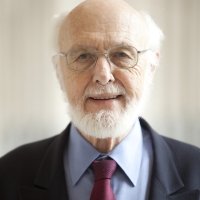Foreign Policy Challenges in the 112th Congress: Development and Security
In the second session of a Wilson Center on the Hill two part series on Foreign Policy Challenges facing the 112th Congress, panelists examined the policy issues affecting the developing world, including U.S. development policy, U.S. nuclear policy, and climate and conflict resolution. Michael Van Dusen, acting Director and President of the Wilson Center, moderated the discussion.
Director of the Wilson Center's Latin American Program, Cynthia Arnson, opened the discussion noting challenges that may rise from its neighbors to the south. Home to many nascent democracies, Latin America still does not boast widespread support for a lot of its democratic institutions. Citing several recent public opinion polls, Arnson explained that while there are many stable regimes in the region, overall faith in the system has remained circumspect. According to the Latin American Public Opinion Project (LAPOP) survey conducted by Vanderbilt University, 52 percent of Latin Americans are unsatisfied with the functioning of democracy, and only 60 percent agreed that "authorities should always follow the law in their job." Arnson attributed the mistrust of democracy to factors such as unemployment, weak rule of law, corruption, and perceived public insecurity. She advised that working on the fundamental problems such as job creation and crime would best strengthen political institutions and U. S. interests in the region.
Geoff Dabelko, director of the Environmental Change and Security Program, continued by assessing how the state of developing countries is affecting both environmental and security issues. Dabelko noted the importance of a diversified approach that "works across bureaucracies" in order to bring all interested parties to the table before making policy decisions. He cited how issues of biodiversity affect the food economy in southeast Asia as an example where specialists ranging from glaciologists to the food security sector ought to be in the conversation when formulating even domestic policy. Dableko stressed that countries must work across development, environment and security fields to find solutions with multiple benefits, suggesting that a "triple bottom line" approach will secure the interests of all sectors concerned.
Robert Litwak, Vice President for Programs and Director of International Security Studies similarly touted the ability to distinguish underlying causes before making policy decisions, especially relating to issues of global nuclear security. He focused his presentation of the importance of “first order questions” of culture and circumstance to influence “second order questions” faced by policymakers. Noting the CIA’s fatal underestimation of Iranian revolutionary capacity in 1979 as an example of flawed “first order” information, Litwak emphasized that a correct understanding of basic cultural realities is crucial for effective policy, especially in terms of nuclear threats. Litwak argued that stemming the danger of proliferation will turn crucially on whether the United States can stay well apprised of the fundamental structure of nuclear states in order to prevent the illicit transfer or theft of a nuclear device in the years ahead.
Finally, Wilson Center Senior Scholar John Sewell brought his extensive knowledge of international development to the discussion on what impact the recent Quadrennial Diplomacy and Development Review (QDDR) will have on the State Department and USAID. The QDDR underlined the key relationship between development and foreign policy, suggesting an expansion of USAID to make it the preeminent development body in the world and a reorganization of State to better take on health, food, and other development related issues. Sewell pointed to several weaknesses in the extensive report, particularly its silence on questions of leadership, budget allocation, the adaptability of USAID, congressional support, and potential aid targets. Since 1961, seven similar reform attempts have failed, and the first-ever QDDR tries to substantiate the need for change. Sewell ultimately recognized that the 112th Congress might not be a "propitious political climate" for the suggested reforms, but agreed with the thrust of the QDDR that USAID and State face a new set of foreign policy problems where issues of development and international aid will strongly influence the U.S. position abroad.
John Coit, Wilson Center on the Hill
David Klaus, Consulting Director, Wilson Center on the Hill
Speakers

Former Senior Advisor to the President for Alumni Relations, Woodrow Wilson Center; Former Executive Vice President and Chief Operating Officer, Woodrow Wilson Center

Professor and Associate Dean, George V. Voinovich School of Leadership and Public Affairs, Ohio University; Associate Senior Fellow, Environment of Peace Initiative, Stockholm International Peace Research Institute


Former President of the Overseas Development Council (ODC)
Hosted By

Environmental Change and Security Program
The Environmental Change and Security Program (ECSP) explores the connections between environmental change, health, and population dynamics and their links to conflict, human insecurity, and foreign policy. Read more


Latin America Program
The Wilson Center’s prestigious Latin America Program provides non-partisan expertise to a broad community of decision makers in the United States and Latin America on critical policy issues facing the Hemisphere. The Program provides insightful and actionable research for policymakers, private sector leaders, journalists, and public intellectuals in the United States and Latin America. To bridge the gap between scholarship and policy action, it fosters new inquiry, sponsors high-level public and private meetings among multiple stakeholders, and explores policy options to improve outcomes for citizens throughout the Americas. Drawing on the Wilson Center’s strength as the nation’s key non-partisan policy forum, the Program serves as a trusted source of analysis and a vital point of contact between the worlds of scholarship and action. Read more
